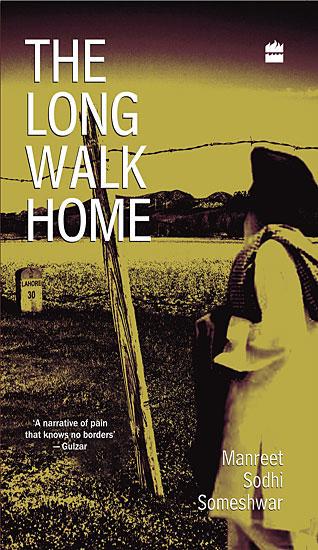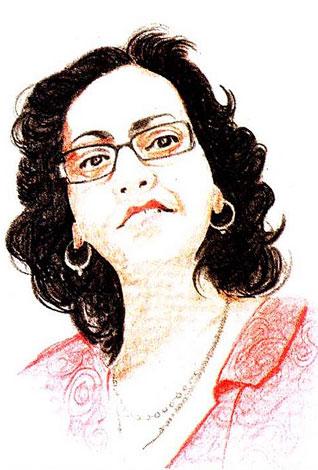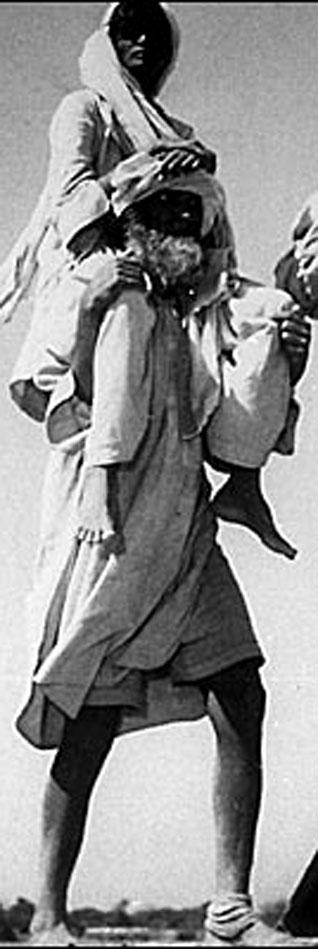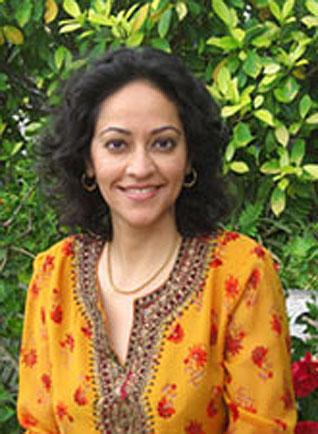
Image below, second from bottom, and homepage - details from photos of Partition refugees by Margaret Bourke-White.



Partition
The Partition & I:
The Long Walk Home
A Book Review by KHUSHWANT SINGH [New Delhi]
Sixty-two years have gone by since the cataclysmic events of 1947 - the Partition of Punjab and the loss of half of the Sikh homeland to newly created Pakistan - led to the sectarian violence that took a toll of more and a million lives and sent millions more as refugees in either direction of the haphazardly carved India-Pakistan border.
Many of those who have personal memories and knowledge of those days are now, because of the passage of time, moving on. It has therefore become urgent that we record their stories for the benefit of future generations.
Encouraged by the phenomenal response to our "1984 & I" project along the same lines, we at sikhchic.com once again turn to you, our readers, to share with us your memories, recollections, opinions and perspectives on 1947 and Partition. Please tell us how the Partition has touched your lives and how it has shaped your perspective on life. More importantly, please record the stories of aging parents, granparents, relatives, friends, colleagues, neighbours - and share them with us so that we in turn can publish them in these pages and, at the same time, create a permanent repository of the same.
We look forward to receiving your stories ... and photos. The following is the third piece in our new series, "THE PARTITION & I".
A BOOK REVIEW
THE LONG WALK HOME, by Manreet Sodhi Someshwar. HarperCollins, India, 2009. 272 pages. Rs. 295.
I have not come across a work of fiction that told the story of the Indian Punjab from its blood-soaked birth in 1947 to the present times, till I chanced upon Manreet Kauir Sodhi Someshwar's The Long Walk Home.
It is, in fact, a saga of one Sikh family uprooted from Lahore and settled in the border town of Ferozepore along the dividing lines of the Sutlej.
The family in her case happens to be of one Harbaksh "Baksh" Singh Bhalla, a prominent criminal lawyer, his wife Preet Kaur Sidhu and their three children - two daughters and a son. It all takes place in 10 days starting from the night when Baksh "woke up early (3 am) because he slept quite early and his tippling started early".
He was obese, diabetic and had heart trouble.
He walked through the bazaar in the dead of night to look for a doctor. He could not find one. So he continued walking through wheat fields he once owned to the banks of the Sutlej. He collapsed on his way back home, was picked up by a rickshaw-wallah and taken to a hospital, where he passed away. The story goes back and forth - reviving events in Punjab.
There is a lot to be said in favour of encapsulating the 63-year-old history of Punjab in the medium-sized novel. It also has bazaars. The pace of her narrative varies from the leisurely to the frenetic.
She tells you about the demand for a Punjabi Suba made by Master Tara Singh and Sant Fateh Singh, Pandit Nehru's reluctance to concede it and Hindu-Sikh tensions that ensue. In between comes the 1965 Indo-Pak war in which Pakistanis assumed that disgruntled Sikhs would side with them. They did not.
The Sikh peasantry rallied round to help the Indian Army repel the attack. Indira Gandhi then conceded the Punjabi Suba with a Sikh majority.
Subsequently, rose Bhindranwale and his Khalistani militants ... in reaction to widespread police repression, fake encounters, arrests of innocent young men on cooked-up charges - all of which Baksh managed to have conveyed to the authorities, but in turn was suspected to be a sympathizer.
There was the Indian Army's attack on The Golden Temple, which took hundreds of innocent lives, and the desecration of the Akal Takht. It was followed by the assassination of Indira Gandhi, followed by the massacre of thousands of innocent Sikhs. And so on.
To hold the readers' interest, the author introduces some titillating, highly improbable anecdotes. It is the stuff a young man's dreams are made of. What she wanted to pack in her novel required a large cabin trunk. She has tried to squeeze it into a small suitcase.
Manreet Sodhi Someshwar is a gifted writer of great promise. I have a gut feeling we have a new star rising in Punjab's literary horizon. She has an excellent command of English and a sly sense of humour. Her dialogues with Punjabi mutilations of English, choice of Punjabi and Urdu proverbs, quotations from the Gurbani, Ghalib, Tagore and Gulzar go down very well.
Being young and gifted, she is unable to resist showing off what she has known.
Readers may know words like moniker, morph and recce, but how many would know omphaloskepsis? I had to look up the dictionary. It means talking to one's navel, a form of meditation. She would do better if she tried it herself.
[Courtesy: The Tribune]
 
August 23, 2009
Conversation about this article
1: Harinder (Bangalore, India), August 23, 2009, 1:51 PM.
It is important that an in-depth analysis be conducted on how the Partition impacted on the Sikhs, and on who are the parties and individuals that should shoulder the blame or enjoy the credit.
2: Charanpal (Kolkata, India), August 23, 2009, 6:06 PM.
Looking forward to reading the book.
3: G.S. (Boston, U.S.A.), August 25, 2009, 6:09 PM.
It's not appropriate to refer to people involved in the Khalistani movement as 'militants'.
4: Dharamveer Singh (Mumbai, India), August 27, 2009, 5:24 AM.
G.S.Singh ji, I think you may not be aware of the fact that throughout the 1984 era Khushwant Singh spoke so harshly against the Sikhs and Sant Jarnail Singh Bhindrawale. He has always been a Indira Gandhi faithful. As for the book, can someone please tell me where it would be available. I definitely want to read it. My respects to Manreet Someshwar Sodhi.


